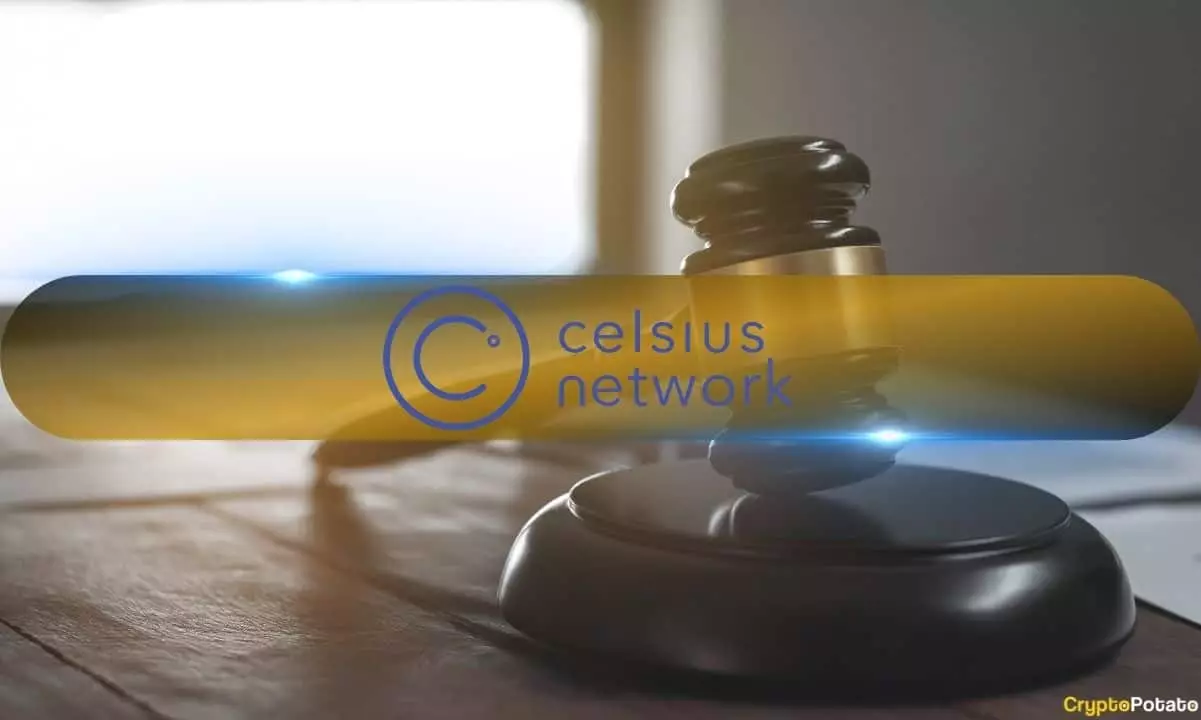In a groundbreaking decision that intertwines the emerging digital economy with traditional legal processes, a Bankruptcy Judge from the Southern District of New York has permitted Celsius Network to employ non-fungible token (NFT) airdrops for the service of legal notices. This novel approach arises amidst the company’s tumultuous insolvency proceedings, where it seeks recourse for funds believed to have been fraudulently transferred to mysterious digital wallets. The challenge of tracking down these wallets’ owners underscores the escalating complexities of legal matters in the era of cryptocurrency.
Celsius Network’s predicament is emblematic of broader issues that have surfaced with the rise of digital currencies. Unlike conventional financial transactions, where personal identities can be traced through bank accounts, cryptocurrency operates on the principles of anonymity and decentralization. This opacity poses significant obstacles for entities like Celsius striving to retrieve lost assets or pursue legal remedies. The company’s attempt to void the purported fraudulent transfers and regain funds for its creditors has been thwarted by the challenge of uncovering the individuals behind the transactions.
In its search for viable solutions, Celsius aggressively sought legal redress but quickly discovered that traditional methods of serving legal notices were futile. Conventional means—like mailing notices to physical addresses—proved inadequate, as identifying the wallet holders was akin to searching for a needle in a haystack. The anonymity that cryptocurrency affords is a double-edged sword; while it protects users’ privacy, it also complicates the enforcement of the law.
In response to these challenges, Celsius proposed an audacious remedy: utilizing NFTs to dispatch legal notices directly to the wallets in question. Each NFT would include a hyperlink leading to a dedicated website where recipients can view pertinent legal documents, including the formal complaint against them. By leveraging this innovative technology, Celsius aims to bridge the gap between crypto transactions and legal accountability.
The adoption of NFTs for legal service is reminiscent of the early days of Internet communication, where email emerged as a revolutionary way to facilitate paperwork. Bankruptcy Judge Martin Glenn acknowledged the significance of this method, stating it embodies “the best possible way” to notify the involved parties. The judge’s commendation of Celsius’s approach reflects an acknowledgment that legal practices must adapt to contemporary technological realities.
To further bolster its solution, Celsius has engaged FTI Consulting, experts in tracking digital transactions and ensuring compliance with legal standards. FTI’s involvement is critical as it not only validates the receipt of the NFTs on the blockchain but also monitors engagement with the hyperlinks. In an age rife with automated bots and fake transactions, the commitment to ensuring that real people are accessing the information adds an essential layer of integrity to the process.
FTI also traced the digital funds back to active wallets, confirming that the same users are likely behind the disputed transfers. This diligence not only supports Celsius’s legal position but also illustrates a thorough approach to ensuring that the court’s ruling is grounded in solid evidence. By following through with painstaking verification methods, Celsius reinforces the concept that technology can enable effective legal recourse even when traditional avenues fail.
The ruling sets a compelling legal precedent that showcases how courts can accommodate new technologies in the service of justice. Under New York law, alternative methods of service are permissible when traditional means prove impractical. With cryptocurrencies growing in popularity and use, it’s vital for the legal system to evolve in parallel. Celsius Network’s precedent could pave the way for similar cases in the future, encouraging entities within cryptocurrency markets to explore innovative solutions to meet legal challenges.
Ultimately, the Celsius Network case reflects a pivotal moment for the interplay between law and technology. The approved use of NFTs for serving legal notices may very well represent not just a unique workaround for Celsius but a comprehensive shift in how legal notifications might be handled as digital currencies continue to disrupt traditional financial systems. As the world increasingly embraces blockchain and other innovative technologies, the ability of the legal system to adapt will be paramount in addressing the novel challenges posed by an evolving marketplace.













